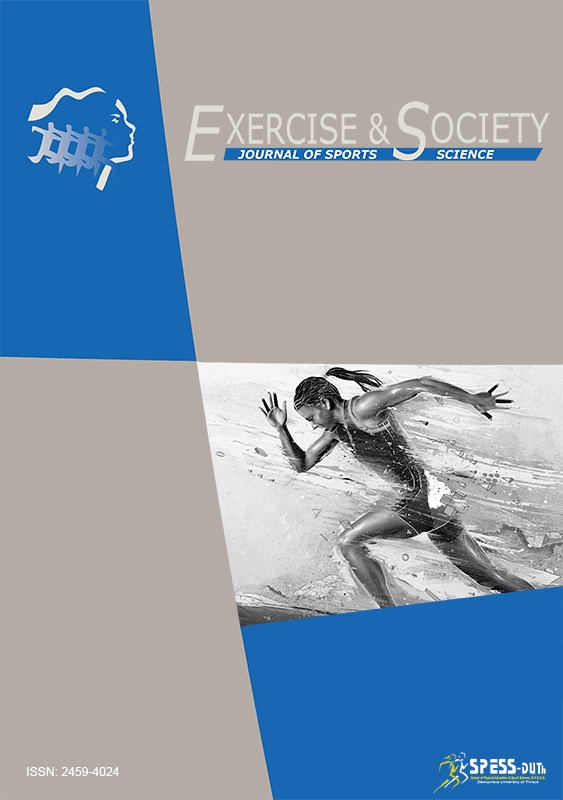Development of LeVAnDa, a Software for Indexing Audiovisual Information Retrieved from YouTube
Abstract
The article focuses on the presentation of the approach LeVAnDa (Lesson Video Analysis Database) software has been developed. LeVAnDa is a tool deployed for YouTube video indexing related to the Physical Education and Sports. A user-centric application development plan, accompanied by indicative use cases, followed by a detailed description of the technology deployed, is being reported. LeVAnDa has been developed based on the open source software approach. The main programming language was php. The components combined were: a) MySQL data-base system, b) Drupal Content Management System, and c) Apache Web Server. In this paper the system’s architecture, the relational database of LeVAnDa, as well as the subsystems comprising and performing the application functionalities are being presented in detail. Finally, the interface and the system performance are being described. Snippets of the LeVAnDa source code are being provided in the appendix.References
Αβούρης, Ν., Κατσάνος, Χ., Τσέλιος, Ν., Μουστάκας, Κ. (2015). Εισαγωγή στην αλληλεπίδραση ανθρώπου-υπολογιστή. [ηλεκτρ. βιβλ.] Αθήνα: Σύνδεσμος Ελληνικών Ακαδημαϊκών Βιβλιοθηκών. Διαθέσιμο στο: http://hdl.handle.net/11419/4213
Αντωνίου, Π. (2017). Σκέψεις για τη σχέση των Τεχνολογιών της Πληροφορίας και των Επικοινωνιών με τη Φυσική Αγωγή. Θέματα Επιστημών και Τεχνολογίας στην Εκπαίδευση, 10 (2-3), σελ. 49-54. Ημερομηνία ανάκτησης 17-09-2018 http://earthlab.uoi.gr/thete/index.php/thete/article/view/283/152
Apache (2018). HTTP Server Project. Retrieved: 14-06-2018. https://httpd.apache.org/
Drupal (2018). We're the leading open-source CMS for ambitious digital experiences that reach your audience across multiple channels. Retrieved: 14-06-2018. https://www.drupal.org
Grünewald, F., Meinel, C., Totschnig, M., & Willems, C. (2013). Designing MOOCs for the Support of Multiple Learning Styles. In Scaling up Learning for Sustained Impact (pp. 371-382). Springer Berlin Heidelberg.
Hill, P. (2013). Some validation of MOOC student patterns graphic. Fromhttp://mfeldstein.com/validation-mooc-student-patterns-graphic/
MySQL. The world's most popular open source database. Retrieved: 13-06-2018. https://www.mysql.com/
Yousef, A. M. F., Chatti, M. A., Schroeder, U., & Wosnitza, M. (2014). What Drives a Successful MOOC? An Empirical Examination of Criteria to Assure Design Quality of MOOCs. In Advanced Learning Technologies (ICALT), 14th International Conference (pp. 44-48). IEEE.
Downloads
Published
How to Cite
Issue
Section
License
Authors who publish with this journal agree to the following terms:
a. Authors retain copyright and grant the journal right of first publication with the work simultaneously licensed under a Creative Commons Attribution License that allows others to share the work with an acknowledgement of the work's authorship and initial publication in this journal.
b. Authors are able to enter into separate, additional contractual arrangements for the non-exclusive distribution of the journal's published version of the work (e.g., post it to an institutional repository or publish it in a book), with an acknowledgement of its initial publication in this journal.
c. Authors are permitted and encouraged to post their work online (e.g., in institutional repositories or on their website) prior to and during the submission process, as it can lead to productive exchanges, as well as earlier and greater citation of published work (See The Effect of Open Access).


